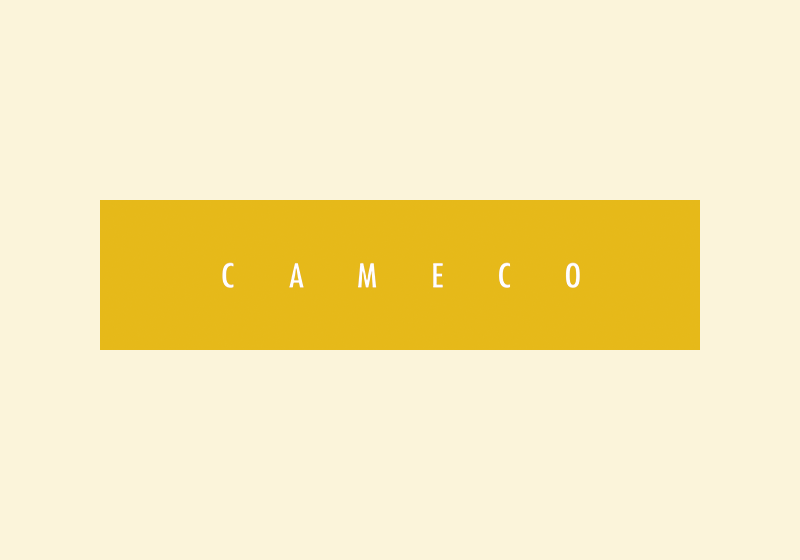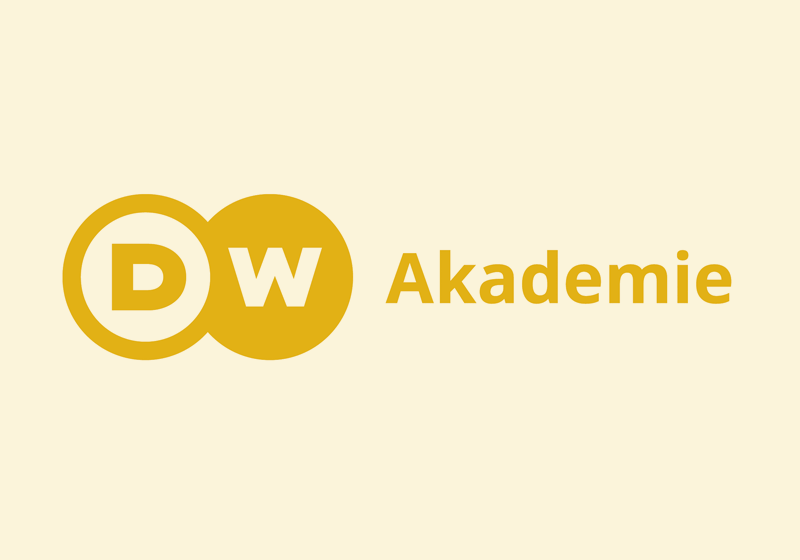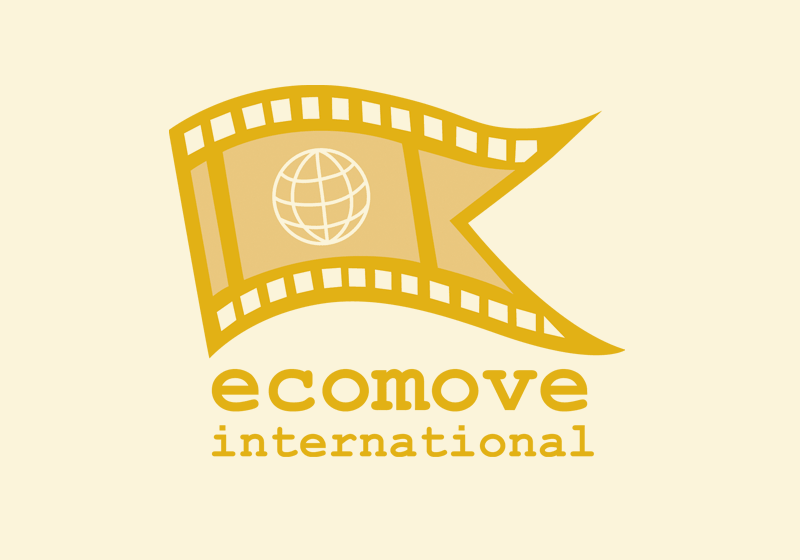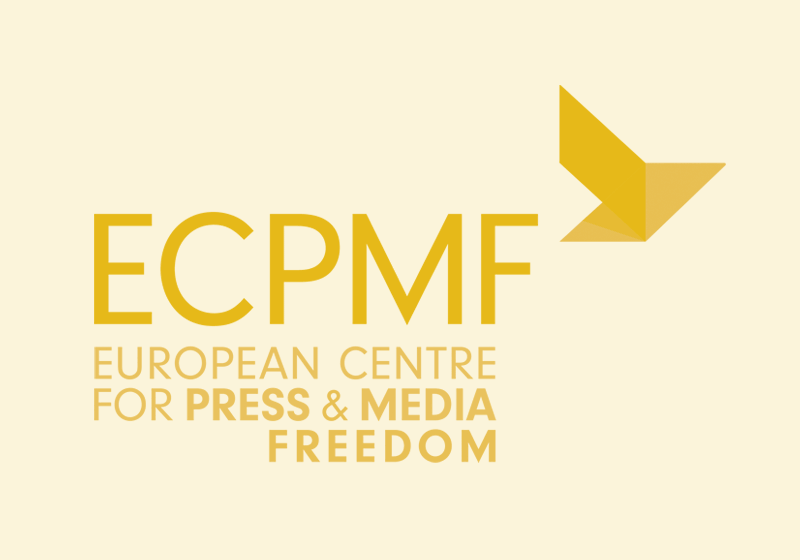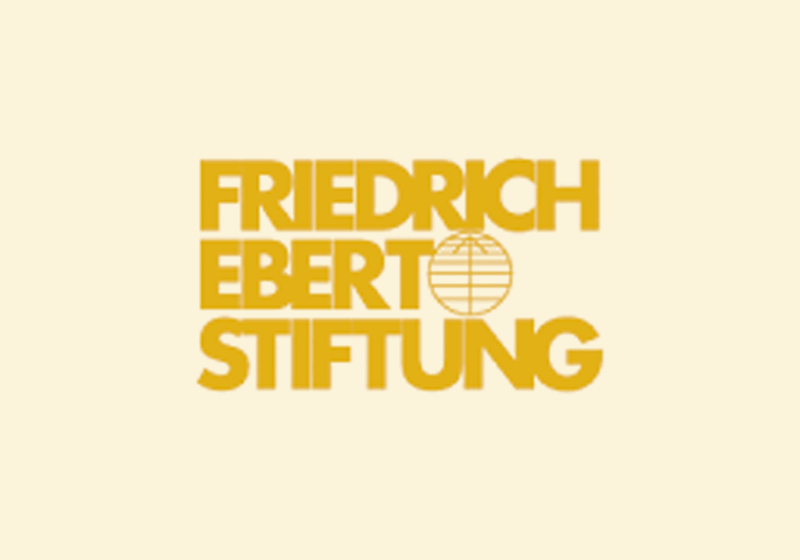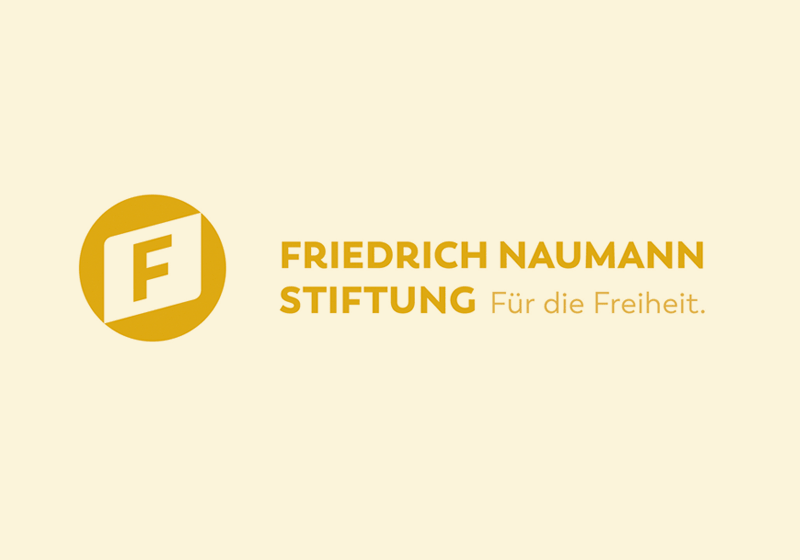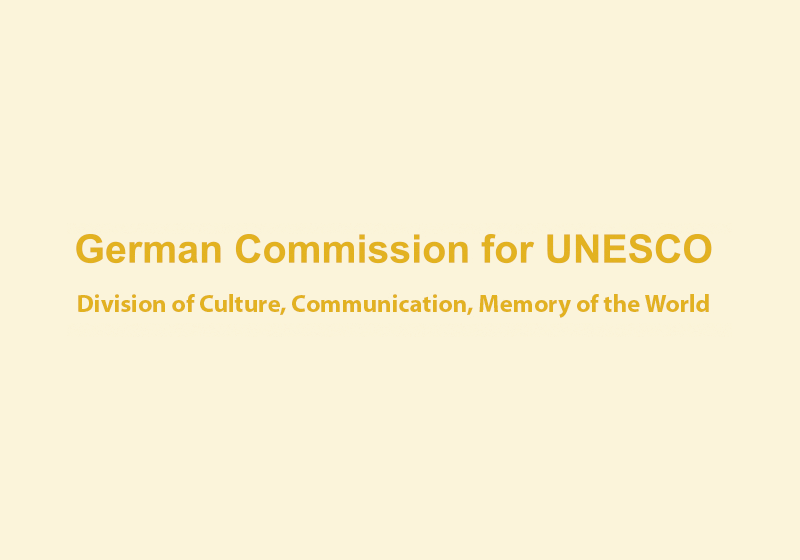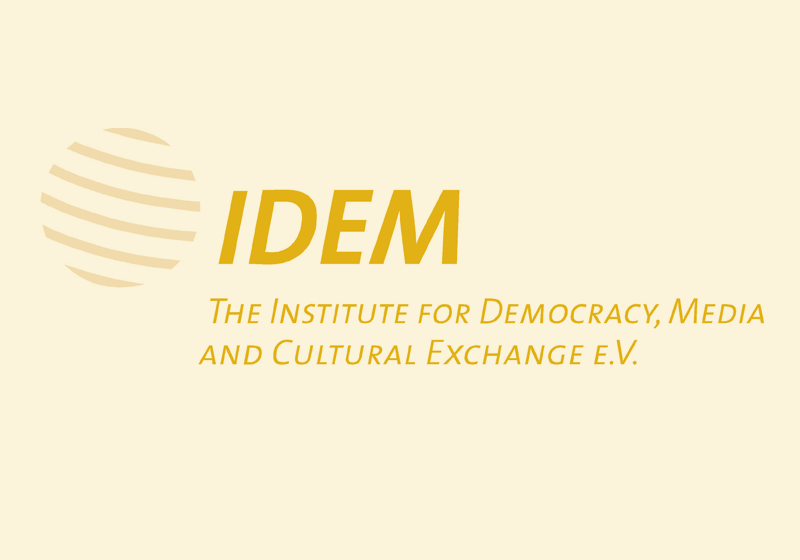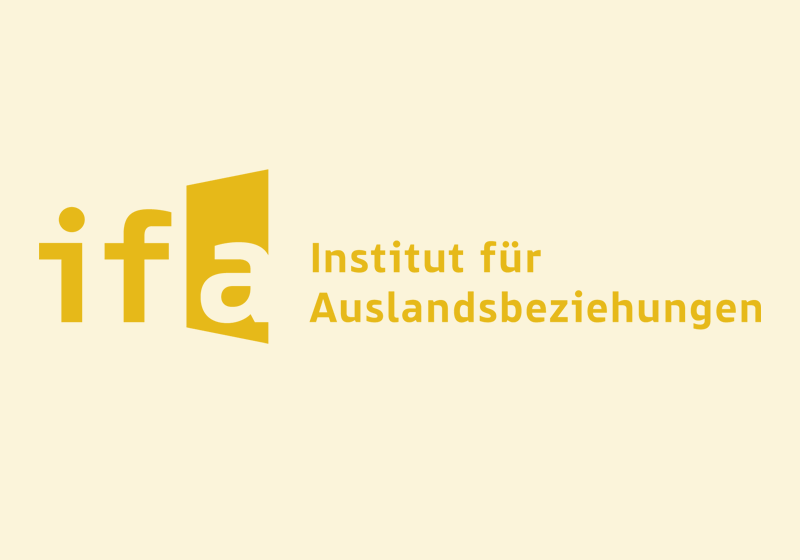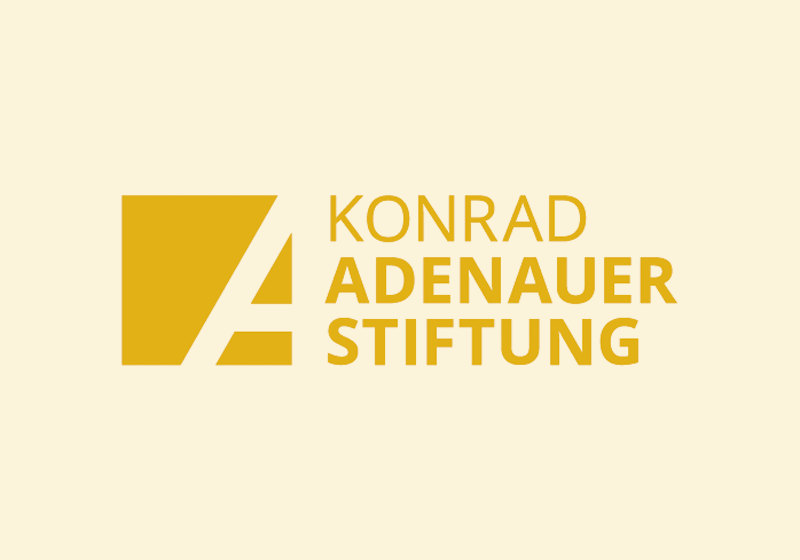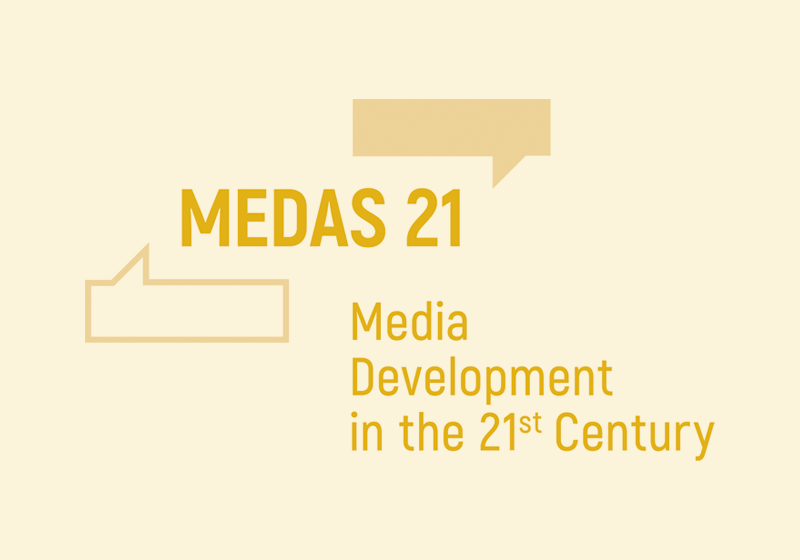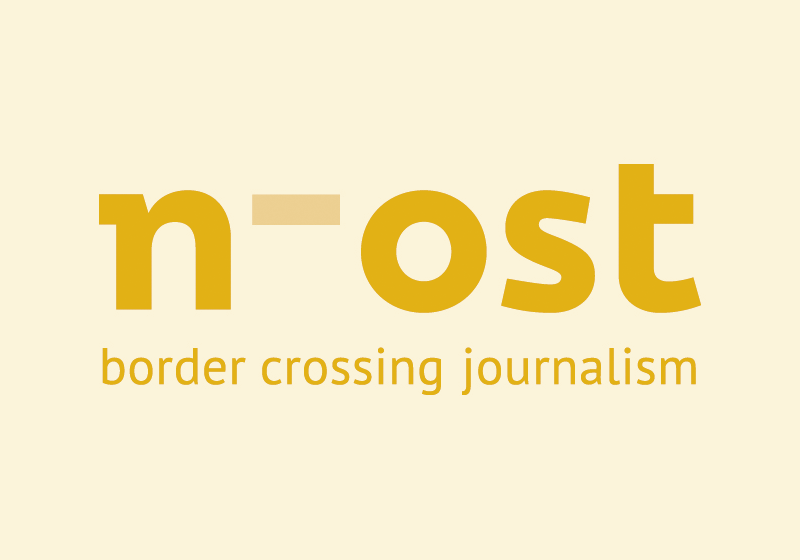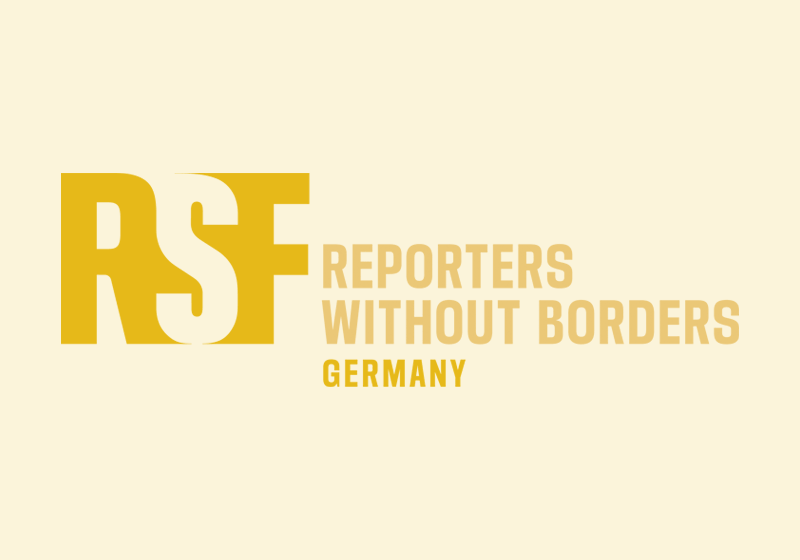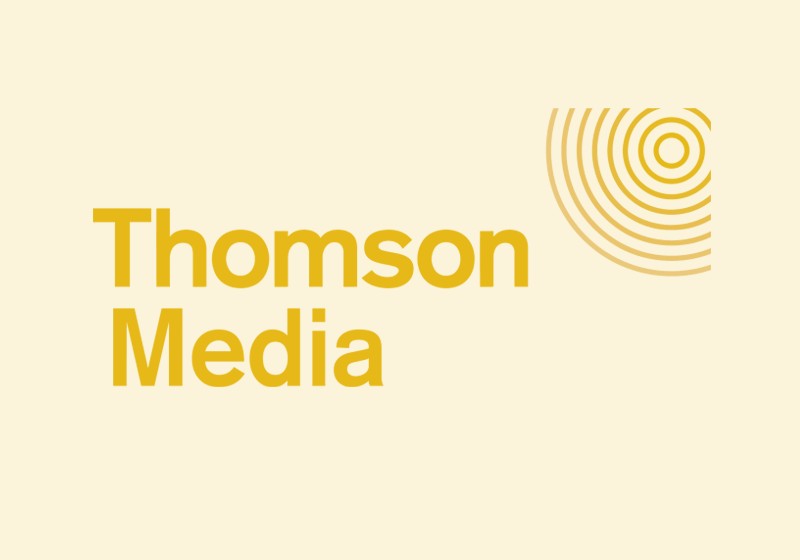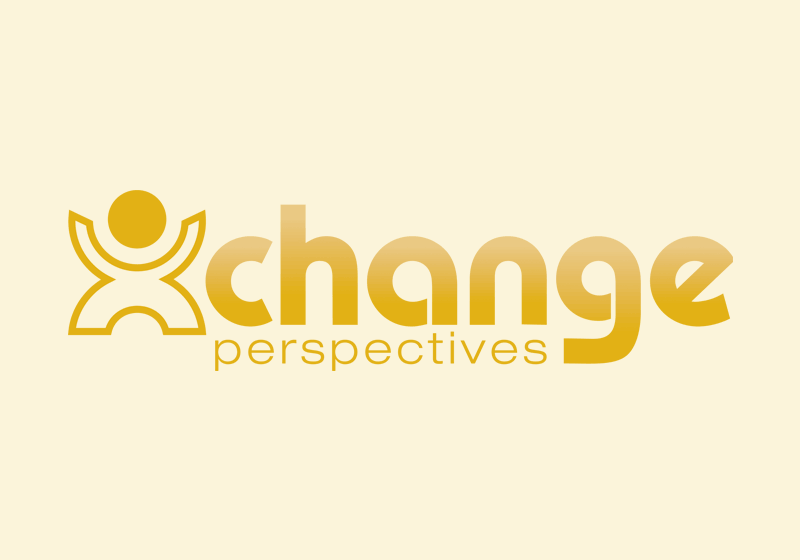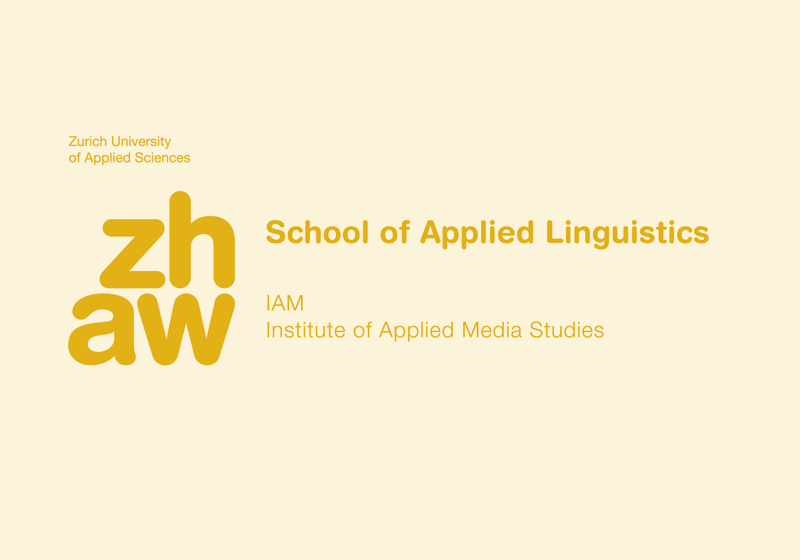Speakers
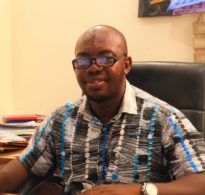
Kwabena Nketia Addae is the Executive Director of Ghana YMCA. He has been a Community Development practitioner with emphasis on youth empowerment since 2001. He holds a BSc. Planning (Development Policy Option) degree from the Kwame Nkrumah University of Science and Technology in Kumasi and upgraded his academic qualification in 2013 obtaining a Commonwealth Master of Business Administration degree. Since 2018, he has led the YMCA team to train young film teachers to offer standardised film education and productions to young people who are in deprived communities and are unable to afford the cost of film education in Ghana.
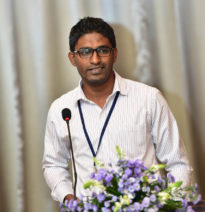 Rislan Mohamed Niyaz Ahamed brings in 15 years of experience working in the development sector ranging from gender equality topics to conflict sensitivity, human rights and democracy. Ahamed has worked extensively with multiple program partners and donor agencies including the EU, GIZ, BMZ, USAID, and the OAK Foundation to name but a few. At Chrysalis, Ahamed heads the Development Services where he leads on design, mobilisation, and implementation of projects. Ahamed’s expertise contributes to policy formulation, advocacy, innovative concepts, and solutions, also how to use arts, culture, and media as vectors to promote social cohesion and fundamental freedoms.
Rislan Mohamed Niyaz Ahamed brings in 15 years of experience working in the development sector ranging from gender equality topics to conflict sensitivity, human rights and democracy. Ahamed has worked extensively with multiple program partners and donor agencies including the EU, GIZ, BMZ, USAID, and the OAK Foundation to name but a few. At Chrysalis, Ahamed heads the Development Services where he leads on design, mobilisation, and implementation of projects. Ahamed’s expertise contributes to policy formulation, advocacy, innovative concepts, and solutions, also how to use arts, culture, and media as vectors to promote social cohesion and fundamental freedoms.
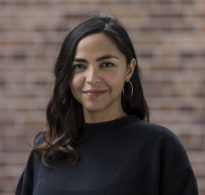 Nube Alvarez coordinates the Defending Voices Project at Reporters Without Borders (RSF) Germany. Before that, she worked as a project manager for RSF’s Media Ownership Monitor in Mexico & Argentina. Alvarez is a media researcher, freelance journalists and news coordinator with a focus on press freedom and media development. Alvarez has experience training up-and-coming journalists in programs boosting media skills. In her M.A International Media Studies’ thesis, Alvarez examined Mexican journalists’ experiences in exile & displacement with the aim to reflect on the phenomena of violence against press & its implications in press freedom.
Nube Alvarez coordinates the Defending Voices Project at Reporters Without Borders (RSF) Germany. Before that, she worked as a project manager for RSF’s Media Ownership Monitor in Mexico & Argentina. Alvarez is a media researcher, freelance journalists and news coordinator with a focus on press freedom and media development. Alvarez has experience training up-and-coming journalists in programs boosting media skills. In her M.A International Media Studies’ thesis, Alvarez examined Mexican journalists’ experiences in exile & displacement with the aim to reflect on the phenomena of violence against press & its implications in press freedom.
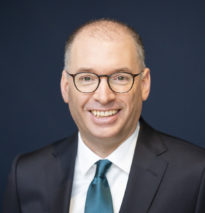 Niels Annen is a German politician of the Social Democratic Party (SPD) who has been serving as Parliamentary State Secretary at the Federal Ministry for Economic Cooperation and Development in the coalition government of Chancellor Olaf Scholz since 2021. Annen served as a Minister of State at the Federal Foreign Office from 2018 to 2021 in the government of Chancellor Angela Merkel. Annen has served as a member of the Bundestag since 2013. After his ferret tim in the Bundestag from 2005 to 2009, Annen was a Senior Transatlantic Resident at the German Marshall Fund in Washington between 2010 and 2011. Afterwards Annen worked for the department for International Policy Analysis of the Friedrich Ebert Foundation in Berlin.
Niels Annen is a German politician of the Social Democratic Party (SPD) who has been serving as Parliamentary State Secretary at the Federal Ministry for Economic Cooperation and Development in the coalition government of Chancellor Olaf Scholz since 2021. Annen served as a Minister of State at the Federal Foreign Office from 2018 to 2021 in the government of Chancellor Angela Merkel. Annen has served as a member of the Bundestag since 2013. After his ferret tim in the Bundestag from 2005 to 2009, Annen was a Senior Transatlantic Resident at the German Marshall Fund in Washington between 2010 and 2011. Afterwards Annen worked for the department for International Policy Analysis of the Friedrich Ebert Foundation in Berlin.
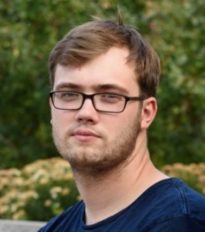 Kirill Artemenko is a cofounder and a CEO of Paper Media, a local independent media company from St.Petersburg, Russia, founded in 2012. Paper Media has a digital audience of 1M+ readers in a month and commercial products from native advertising to paid memberships and VPN services provided to readers. After the Russian invasion in Ukraine Paper Media was blocked by Russian officials due to uncensored coverage of the consequences of the Russian military aggression and part of the team went into exile.
Kirill Artemenko is a cofounder and a CEO of Paper Media, a local independent media company from St.Petersburg, Russia, founded in 2012. Paper Media has a digital audience of 1M+ readers in a month and commercial products from native advertising to paid memberships and VPN services provided to readers. After the Russian invasion in Ukraine Paper Media was blocked by Russian officials due to uncensored coverage of the consequences of the Russian military aggression and part of the team went into exile.
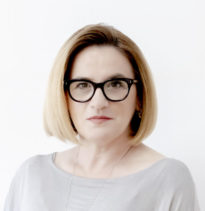 Leila Bičakčić is one of the founders and CEO of Center for Investigative Reporting (CIN), first investigative center to be established in the Balkans. Today, CIN is an independent media agency dedicated to investigating and reporting on corruption, organized crime and nexus between political elites and criminal circles. Specialises in policy development in area of transparency and accountability, particularly FOIA and GDPR, public administration reform, anti- corruption. Special interest in areas of research and investigative reporting, business development of media agencies and NGOs, professional development.
Leila Bičakčić is one of the founders and CEO of Center for Investigative Reporting (CIN), first investigative center to be established in the Balkans. Today, CIN is an independent media agency dedicated to investigating and reporting on corruption, organized crime and nexus between political elites and criminal circles. Specialises in policy development in area of transparency and accountability, particularly FOIA and GDPR, public administration reform, anti- corruption. Special interest in areas of research and investigative reporting, business development of media agencies and NGOs, professional development.
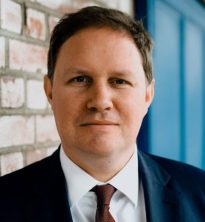 Dr. Carsten Brosda is a German politician of the Social Democratic Party (SPD). Since February 2017 he has been Senator and Head of the Hamburg Authority for Culture and Media in the Senates Scholz II and Tschentscher. Before Brosda worked in various positions as a press officer, editor, speechwriter and policy speaker at the Party Executive of the SPD in Berlin. He worked under the then Federal Minister of Labor and Social Affairs and was head of the communication department of the SPD party executive committee, until in June 2011 the First Mayor of Hamburg, Olaf Scholz, appointed Brosda as head of Media Office in the Hamburg Senate Chancellery. From 2013, he was representative of the Senate of Hamburg for media. 2016, Brosda was appointed as State Councillor of the Senate Chancellery for the Media & Digitisation & of the Culture Authority in Senate Scholz.
Dr. Carsten Brosda is a German politician of the Social Democratic Party (SPD). Since February 2017 he has been Senator and Head of the Hamburg Authority for Culture and Media in the Senates Scholz II and Tschentscher. Before Brosda worked in various positions as a press officer, editor, speechwriter and policy speaker at the Party Executive of the SPD in Berlin. He worked under the then Federal Minister of Labor and Social Affairs and was head of the communication department of the SPD party executive committee, until in June 2011 the First Mayor of Hamburg, Olaf Scholz, appointed Brosda as head of Media Office in the Hamburg Senate Chancellery. From 2013, he was representative of the Senate of Hamburg for media. 2016, Brosda was appointed as State Councillor of the Senate Chancellery for the Media & Digitisation & of the Culture Authority in Senate Scholz.
 Andrea Cairola works at UNESCO headquarters in Paris as senior Programme Specialist within the Section for Freedom of Expression and Safety of Journalists of the Communication and Information Sector (CI). His current main responsibilities include coordinating the implementation of the UN Plan of Action on the Safety of Journalists and the Issue of Impunity, the organisation of the World Press Freedom Day global celebration, as well as implementing the Global Media Defence Fund. In previous assignments with UNESCO Cairola has been responsible of the CI programme in sub-regional offices for North-East Asia, the Maghreb and in the UNESCO office in Afghanistan. Dealing with media development and the promotion of freedom of expression, he also undertook missions to the Middle-East, Central Asia, as well as in Central and East African countries; worked for the specialised NGO International Media Support.
Andrea Cairola works at UNESCO headquarters in Paris as senior Programme Specialist within the Section for Freedom of Expression and Safety of Journalists of the Communication and Information Sector (CI). His current main responsibilities include coordinating the implementation of the UN Plan of Action on the Safety of Journalists and the Issue of Impunity, the organisation of the World Press Freedom Day global celebration, as well as implementing the Global Media Defence Fund. In previous assignments with UNESCO Cairola has been responsible of the CI programme in sub-regional offices for North-East Asia, the Maghreb and in the UNESCO office in Afghanistan. Dealing with media development and the promotion of freedom of expression, he also undertook missions to the Middle-East, Central Asia, as well as in Central and East African countries; worked for the specialised NGO International Media Support.
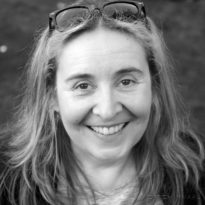 Aida Cerkez is a writer, manager and editor. She was born in Sarajevo, Bosnia-Herzegovina in 1962, and grew up in the former Yugoslavia and Germany. Cerkez became chief of the Associated Press (AP) Sarajevo bureau in 1994, while the Bosnian capital was under siege. She assumed responsibility for the AP’s coverage of the ongoing conflict in words and images, as well as managing logistics and security for more than and dozen local employees in three field offices, and for visiting correspondents. In 1995, Cerkez won the Associated Press’ Gramling Award for best managed media operation. As of 2009 Aida Cerkez is also in charge of planning AP regional television coverage. In 2005 Cerkez joined the board of the New York University’s Centre for Investigative Journalism, based in Sarajevo. Today she works for Organized Crime and Corruption Reporting Project.
Aida Cerkez is a writer, manager and editor. She was born in Sarajevo, Bosnia-Herzegovina in 1962, and grew up in the former Yugoslavia and Germany. Cerkez became chief of the Associated Press (AP) Sarajevo bureau in 1994, while the Bosnian capital was under siege. She assumed responsibility for the AP’s coverage of the ongoing conflict in words and images, as well as managing logistics and security for more than and dozen local employees in three field offices, and for visiting correspondents. In 1995, Cerkez won the Associated Press’ Gramling Award for best managed media operation. As of 2009 Aida Cerkez is also in charge of planning AP regional television coverage. In 2005 Cerkez joined the board of the New York University’s Centre for Investigative Journalism, based in Sarajevo. Today she works for Organized Crime and Corruption Reporting Project.
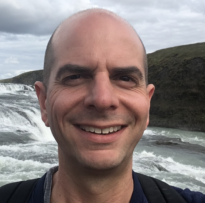 Jeffrey Conroy-Krutz is associate professor and incoming chair of the Department of Political Science at Michigan State University. He studies media, polarization, and elections in Africa, focusing on experimental methods. His recent work examines media-based efforts to combat hate speech and misinformation, and encourage democratic engagement, in Central African Republic, DR Congo, Madagascar, Niger, and Rwanda; he has also worked in Côte d’Ivoire, Kenya, Ghana, Mali, Nigeria, Senegal, and Uganda. He is the lead author of a new Afrobarometer report on popular support for media and civic freedoms in Africa. He edits the Afrobarometer Working Papers Series.
Jeffrey Conroy-Krutz is associate professor and incoming chair of the Department of Political Science at Michigan State University. He studies media, polarization, and elections in Africa, focusing on experimental methods. His recent work examines media-based efforts to combat hate speech and misinformation, and encourage democratic engagement, in Central African Republic, DR Congo, Madagascar, Niger, and Rwanda; he has also worked in Côte d’Ivoire, Kenya, Ghana, Mali, Nigeria, Senegal, and Uganda. He is the lead author of a new Afrobarometer report on popular support for media and civic freedoms in Africa. He edits the Afrobarometer Working Papers Series.
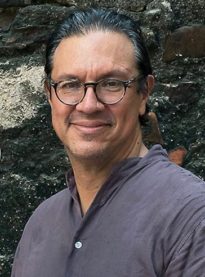 Ricardo Corredor was the director of communications at the Truth Commission in Colombia until august 2022. Previously he served as executive director of the Gabriel García Márquez Foundation for New Journalism, provost of the Caribbean campus of Jorge Tadeo Lozano University in Cartagena, and Manager of the Mobilization and Digital Strategy at ANDI Communication and Rights in Brazil. Throughout his nearly 30-year career, Corredor has worked in various Colombian and international governmental and non-governmental organisations in the areas of communication for development, journalism, education and international cooperation. He is a board member of the Freedom of the Press Foundation (FLIP) in Colombia.
Ricardo Corredor was the director of communications at the Truth Commission in Colombia until august 2022. Previously he served as executive director of the Gabriel García Márquez Foundation for New Journalism, provost of the Caribbean campus of Jorge Tadeo Lozano University in Cartagena, and Manager of the Mobilization and Digital Strategy at ANDI Communication and Rights in Brazil. Throughout his nearly 30-year career, Corredor has worked in various Colombian and international governmental and non-governmental organisations in the areas of communication for development, journalism, education and international cooperation. He is a board member of the Freedom of the Press Foundation (FLIP) in Colombia.
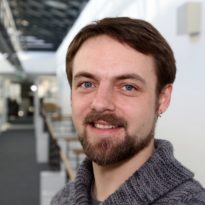 Simon Didszuweit is a Social scientist that works as a policy advidor and trainer at the department Policy and Learning at DW Akademie. Didszuweit has over ten years of experience in media development, donor relations and training. He is also an enthusiastic visual facilitator and -coach.
Simon Didszuweit is a Social scientist that works as a policy advidor and trainer at the department Policy and Learning at DW Akademie. Didszuweit has over ten years of experience in media development, donor relations and training. He is also an enthusiastic visual facilitator and -coach.
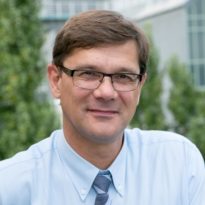 Werner Eggert is the Founding Director of Interlink Academy, he also works as a media consultant and journalism trainer for various institutions in Germany and abroad. Eggert has been active in international media development for more than twenty years. He has recently established several e-learning projects for Deutsche Welle Akademie in Myanmar and Ukraine, and from 2010 to 2014 was at the helm of Bertelsmann’s innovative Intajour project. Earlier, he was the Editor-in Chief of the Educational Television and Radio Channel TIDE in Hamburg, and worked as a Senior Project Manager at the International Institute for Journalism.
Werner Eggert is the Founding Director of Interlink Academy, he also works as a media consultant and journalism trainer for various institutions in Germany and abroad. Eggert has been active in international media development for more than twenty years. He has recently established several e-learning projects for Deutsche Welle Akademie in Myanmar and Ukraine, and from 2010 to 2014 was at the helm of Bertelsmann’s innovative Intajour project. Earlier, he was the Editor-in Chief of the Educational Television and Radio Channel TIDE in Hamburg, and worked as a Senior Project Manager at the International Institute for Journalism.
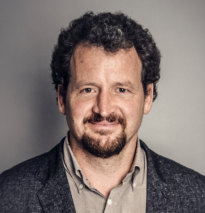
Moritz Gathmann is chief reporter of the German magazine Cicero. Moritz Gathmann has been reporting from Eastern Europe for 15 years, from 2008-2013 he was based in Moscow. Moritz Gathmann has been covering the conflict in Ukraine since 2014.
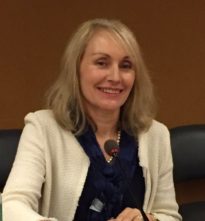 Jaqueline Harrison is Professor of Public Communication, UNESCO Chair on Media Freedom, Journalism Safety and the Issue of Impunity and Chair of the interdisciplinary Centre for Freedom of the Media (CFOM) at the University of Sheffield, UK. She has written and published on the civil power of the news, media regulation & freedom of expression and the development of factual media civil capacity in post-conflict contexts. Harrison’s current research focuses on measures aimed to mitigate a range of threats to free and independent journalists, as well as journalists and media workers which are often undertaken with impunity and new methodologies for the monitoring of attacks on journalists.
Jaqueline Harrison is Professor of Public Communication, UNESCO Chair on Media Freedom, Journalism Safety and the Issue of Impunity and Chair of the interdisciplinary Centre for Freedom of the Media (CFOM) at the University of Sheffield, UK. She has written and published on the civil power of the news, media regulation & freedom of expression and the development of factual media civil capacity in post-conflict contexts. Harrison’s current research focuses on measures aimed to mitigate a range of threats to free and independent journalists, as well as journalists and media workers which are often undertaken with impunity and new methodologies for the monitoring of attacks on journalists.
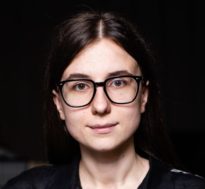 Khrystyna Havryliuk is the News Editor-in-Chief of the Ukrainian National Public Broadcasting Company (Suspilne). After her studies (Political Sciences & Journalism) Havryliuk worked for a Media NGO and a local media in Chernivtsi before she became the News Editor-in-Chief of the Bukovyna branch of the Public Broadcasting Company in 2018. Havryliuk interned with media in Belarus, Poland & the US.
Khrystyna Havryliuk is the News Editor-in-Chief of the Ukrainian National Public Broadcasting Company (Suspilne). After her studies (Political Sciences & Journalism) Havryliuk worked for a Media NGO and a local media in Chernivtsi before she became the News Editor-in-Chief of the Bukovyna branch of the Public Broadcasting Company in 2018. Havryliuk interned with media in Belarus, Poland & the US.
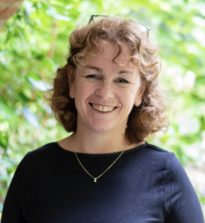 Emma Heywood is a Researcher and Senior Lecturer in Journalism, Radio and Communication in the Department of Journalism Studies at the University of Sheffield, UK. Heywood’s research focuses on the role and impact of radio in conflict-affected areas. As leading researcher on two large projects, Heywood has investigated perceptions and representations of women’s rights and empowerment by radio in Mali, Niger, Burkina Faso, and the role of radio during Covid-19 in the Sahel and DRC. Heywood has published widely on these topics and leads the FemmePowermentAfrique project.
Emma Heywood is a Researcher and Senior Lecturer in Journalism, Radio and Communication in the Department of Journalism Studies at the University of Sheffield, UK. Heywood’s research focuses on the role and impact of radio in conflict-affected areas. As leading researcher on two large projects, Heywood has investigated perceptions and representations of women’s rights and empowerment by radio in Mali, Niger, Burkina Faso, and the role of radio during Covid-19 in the Sahel and DRC. Heywood has published widely on these topics and leads the FemmePowermentAfrique project.
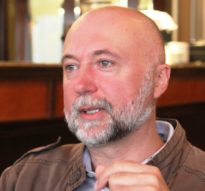
Refik Hodzic is a strategic communications specialist from Prijedor, Bosnia and Herzegovina. He has worked for more than 25 years in the field of transitional justice, with a particular focus on the role of media and communications. Hodzic works as a strategic communications consultant on Syria with the European Institute for Peace and recently with the UNDP, the Independent Investigative Mechanism for Myanmar and Open Society Justice Initiative on Myanmar, Sri Lanka & Afghanistan. Hodzic served as ICTJ’s director of communications from 2011-2017 and with the International Criminal Tribunal for Yugoslavia from 2000–2004 and 2006–2010 as the Tribunal’s spokesman and outreach coordinator for Bosnia and Herzegovina.
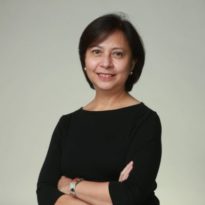 Chay Hofileña is Head of Rappler´s Investigative Desk and oversees training. She co-founded the first online-only news magazine in the Philippines Rappler. Since 2017 several judicial charges have been filed against it. Before joining, Hofileña co-founded Newsbreak Magazine and was a contributing writer. She has written on media issues and authored the book, “News for Sale: The Corruption and Commercialisation of the Philippine Media (2004)”. She co-wrote with Miriam Grace Go the book on the 2010 Philippine elections, “Ambition Destiny Victory: Stories from a Presidential Election.” Hofileña teaches News Writing & Investigative Journalism to undergraduate students.
Chay Hofileña is Head of Rappler´s Investigative Desk and oversees training. She co-founded the first online-only news magazine in the Philippines Rappler. Since 2017 several judicial charges have been filed against it. Before joining, Hofileña co-founded Newsbreak Magazine and was a contributing writer. She has written on media issues and authored the book, “News for Sale: The Corruption and Commercialisation of the Philippine Media (2004)”. She co-wrote with Miriam Grace Go the book on the 2010 Philippine elections, “Ambition Destiny Victory: Stories from a Presidential Election.” Hofileña teaches News Writing & Investigative Journalism to undergraduate students.
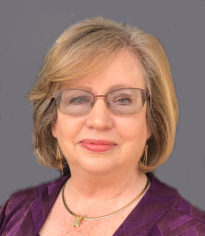 Ann Hollifield is Professor Emerita at the University of Georgia and a senior research consultant for DW Akademie. Her research focuses on media management and economics, with emphasis on news media viability. She is the author and editor of eight books and nearly 50 other research articles and book chapters. Prior to her academic career, Hollifield was a journalist and has worked in journalism training and professional development around the world. She is a Media Analytics and Media Viability Expert.
Ann Hollifield is Professor Emerita at the University of Georgia and a senior research consultant for DW Akademie. Her research focuses on media management and economics, with emphasis on news media viability. She is the author and editor of eight books and nearly 50 other research articles and book chapters. Prior to her academic career, Hollifield was a journalist and has worked in journalism training and professional development around the world. She is a Media Analytics and Media Viability Expert.
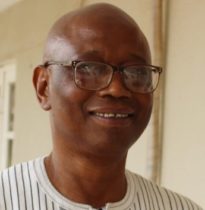
Baba Jallow was Executive Secretary of The Gambia’s Truth, Reconciliation and Reparations Commission (TRRC). He holds a doctorate in African History from the University of California at Davis, a Master of Arts in Liberal Studies from Rutgers University, New Jersey, and a Bachelor of Arts in History and Political Science from Fourah Bay College, the University of Sierra Leone. Jallow has taught African and world history at Creighton University in Omaha, Nebraska and at La Salle University in Philadelphia, Pennsylvania. 2017/8 he was a visiting professor in the MA program in African history at the University of The Gambia. Prior to going into exile in the US in 2000, Jallow was editor-in-chief of the Gambian Daily Observer and Founder Editor and CEO of The Independent, a newspaper that was forcibly shut down by exiled Gambian dictator Yahya Jammeh in March 2006.
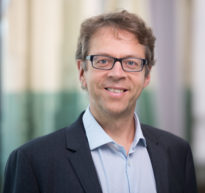
Guido Keel is the director of the Institute of Applied Media Studies and Professor for Journalism and Media Literacy at the Zurich University of Applied Sciences. Over the last 15 years, Keel has been doing research on media performance and media effects in non-western contexts, trying to link theories of journalism and mass communication with media projects in African countries.
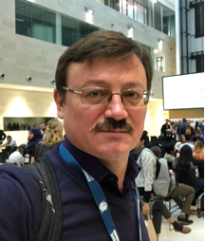 Oleg Khomenok, media trainer and consultant, Senior Media Advisor at Internews Network, member of the Board of Directors of the Global Investigative Journalists Network (GIJN), expert at the International Fact-Checking Network, member of the Commission on Journalistic Ethics, has more than 27 years of experience in journalism, media education, PR and GR, management of investigative journalism & media support projects. Khomenok is author of manuals on investigative journalism, media management, election coverage, economic journalism and press history.
Oleg Khomenok, media trainer and consultant, Senior Media Advisor at Internews Network, member of the Board of Directors of the Global Investigative Journalists Network (GIJN), expert at the International Fact-Checking Network, member of the Commission on Journalistic Ethics, has more than 27 years of experience in journalism, media education, PR and GR, management of investigative journalism & media support projects. Khomenok is author of manuals on investigative journalism, media management, election coverage, economic journalism and press history.
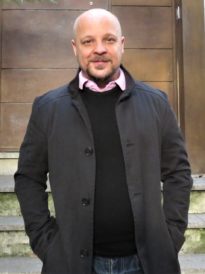
Rousbeh Legatis is a peace and conflict researcher, former UN correspondent, and international consultant on the role of journalists as actors in conflict transformation processes. In his practice-oriented work, building on insights derived from critical peace research, he supports processes of Peacebuilding, transitional justice and dealing with the past, and memory work in contexts of political transition. Rousbeh works with civil society organisations, international & academic organisations, as a consultant, project developer and evaluator, to strengthen these organisations in their conflict transformation endeavours in peace processes, up until now mostly in Latin America.
 Christine Liehr has worked in the development sector for ten years, focusing on social entrepreneurship and media development in Southeast Asia and the MENA region. She currently works as development manager for the Thomson Foundation, sourcing and managing its media development projects. Liehr has a specific focus on donor relations within the EU. She joined Thomson in October 2017 to support our newly established partner in Germany, Thomson Media. Liehr holds a Bachelor’s degree in European Management from Lancaster University, the European School of Business and a Master’s degree in Journalism from the University of Westminster in London.
Christine Liehr has worked in the development sector for ten years, focusing on social entrepreneurship and media development in Southeast Asia and the MENA region. She currently works as development manager for the Thomson Foundation, sourcing and managing its media development projects. Liehr has a specific focus on donor relations within the EU. She joined Thomson in October 2017 to support our newly established partner in Germany, Thomson Media. Liehr holds a Bachelor’s degree in European Management from Lancaster University, the European School of Business and a Master’s degree in Journalism from the University of Westminster in London.
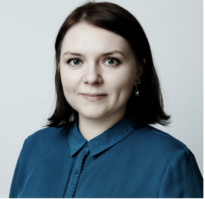 Anastasia Magazova born in 1989 in the Crimea (Ukraine). Since 2013 author for taz, die tageszeitung and 2015-2018 correspondent for Deutsche Welle (DW). As a journalist, she is particularly interested in politics in Eastern Europe and German-Ukrainian relations. In 2021, she published the book “Unrecognised Stories” – a collection of reportages on de facto states in the post-Soviet space that are not recognised under international law: Abkhazia, South Ossetia, Transnistria and Nagorno-Karabakh. For taz, she has been reporting almost daily from the Kyiv region, from Donbas & other parts of Ukraine since the early days of the war.
Anastasia Magazova born in 1989 in the Crimea (Ukraine). Since 2013 author for taz, die tageszeitung and 2015-2018 correspondent for Deutsche Welle (DW). As a journalist, she is particularly interested in politics in Eastern Europe and German-Ukrainian relations. In 2021, she published the book “Unrecognised Stories” – a collection of reportages on de facto states in the post-Soviet space that are not recognised under international law: Abkhazia, South Ossetia, Transnistria and Nagorno-Karabakh. For taz, she has been reporting almost daily from the Kyiv region, from Donbas & other parts of Ukraine since the early days of the war.
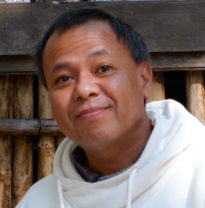 U Soe Myint is Editor-in-Chief and Co-founder of the multimedia news organization Mizzima. He was in exile for 24 years while the country was under military dictatorship. In 1998 U Soe Myint founded Mizzima in New Delhi, India together with Daw Thin Thin Aung. In January 2012, Mizzima was the first exile media to move back inside Myanmar, after the country opened up to democratic change. Last year the military regime forcibly shut down Free-To-Air Mizzima TV channel when it staged coup on February 1, 2021. So far, six Mizzima journalists were arrested and tortured by the regime. Four of them were released, but two journalists remain in jail. However, Mizzima continue to broadcast and publish independent news. He and his colleagues are working from different locations inside & outside Myanmar.
U Soe Myint is Editor-in-Chief and Co-founder of the multimedia news organization Mizzima. He was in exile for 24 years while the country was under military dictatorship. In 1998 U Soe Myint founded Mizzima in New Delhi, India together with Daw Thin Thin Aung. In January 2012, Mizzima was the first exile media to move back inside Myanmar, after the country opened up to democratic change. Last year the military regime forcibly shut down Free-To-Air Mizzima TV channel when it staged coup on February 1, 2021. So far, six Mizzima journalists were arrested and tortured by the regime. Four of them were released, but two journalists remain in jail. However, Mizzima continue to broadcast and publish independent news. He and his colleagues are working from different locations inside & outside Myanmar.
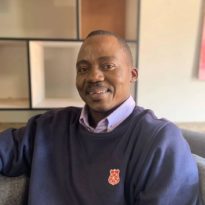
Zenzele Ndebele is a journalist and Media Consultant. He has worked in the media industry for the past 20 years. He has also worked as a correspondent for different Media houses regionally and internationally. Ndebele is also a Documentary Film producer. He is very passionate about Transitional Justice and since 2005 Ndebele has been researching on the Gukurahundi genocide which killed over 20 000 people between 1983-1987. Currently he is the Director of the Center For Innovation and Technology (CITE) which he co-founded in 2015.
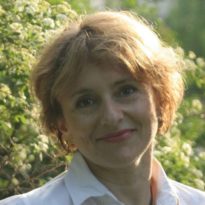
Yana Naralska is a Media Developer and Project Manager of the MediaFitProgramme for Information Integrity in Southern and Eastern Ukraine implemented by DW Akademie. The project aims at supporting local media to remain operational and resilient in the context of war. With a Master’s Degree in International Economics and twenty years of prior experience in the development sector, mostly in the regions of Eastern Europe, Middle East and Caucasus, Naralska joined DW Akademie five years ago to implement media development projects in Ukraine.
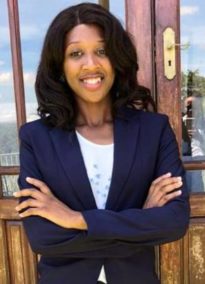
Lungile Ngewenya is a Social Media Editor at the Center For Innovation and Technology (CITE). She has a BSc Degree in Journalism and Media Studies from the National University of Science and Technology in Zimbabwe and currently pursuing a Master of Science degree in Journalism and Media. Ngewenya has experience with news writing, social media, online presenting and magazine design. Ngewenya is a media practitioner interested in helping young women to become citizen journalists who can tell stories about communities. She was the Coordinator for ‘We The Future,’ (2018-2021)a project focussing on training young women with journalism skills.
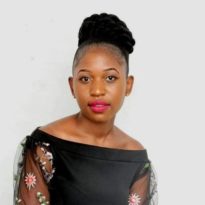
Lotricia Nleya works at the Center for Innovation & Technology (CITE) in Zimbabwe. A community activist and multiplier on Media and Information Literacy. She is currently pursuing a Bachelor of Arts honours Degree in Media Studies at Zimbabwe Open University.
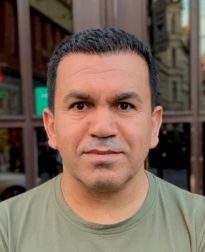 Salam Omer is Editor in Chief of the independent news website KirkukNow and a trainer for conflict-sensitive reporting. He has a background of business administration at the American University of Iraq, Sulaimani (AUIS) and over 19 years of experience in the media and business sectors. Omer has been involved in various media, education, and business projects in Iraq – namely, in its disputed territories. With his 10 years’ work experience as the Editor-in-Chief he plays a vital role in regional as well as international networks of media development organisations. He knows how to lead a multi-ethnic, multi-religious team in a challenging environment as Iraq, also with administration & conflicts.
Salam Omer is Editor in Chief of the independent news website KirkukNow and a trainer for conflict-sensitive reporting. He has a background of business administration at the American University of Iraq, Sulaimani (AUIS) and over 19 years of experience in the media and business sectors. Omer has been involved in various media, education, and business projects in Iraq – namely, in its disputed territories. With his 10 years’ work experience as the Editor-in-Chief he plays a vital role in regional as well as international networks of media development organisations. He knows how to lead a multi-ethnic, multi-religious team in a challenging environment as Iraq, also with administration & conflicts.
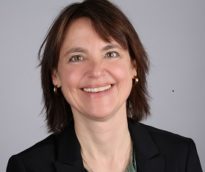 Sigrun Rottmann is a freelance journalist and part-time lecturer at the Institute of Journalism at Technical University Dortmund, where she heads the Print Lab and teaches Conflict Sensitive Journalism. She studied Political Science, trained at German newspaper Frankfurter Rundschau and was the paper’s correspondent for Mexico, Central America and the Caribbean from 1999 to 2001. She then joined the BBC World Service in London, where she produced news and current affairs programmes for eight years. Rottmann has also carried out journalism trainings for DW Akademie and GIZ in South Sudan, Egypt, Kenya and Bangladesh. She is a certified systemic coach and holds a certificate in Peace and Conflict Work from the Academy for Conflict Transformation (forumZFD). Currently Rottmann is developing new training formats for Conflict Sensitive Journalism with a focus on reporting debates, controversies and social conflict.
Sigrun Rottmann is a freelance journalist and part-time lecturer at the Institute of Journalism at Technical University Dortmund, where she heads the Print Lab and teaches Conflict Sensitive Journalism. She studied Political Science, trained at German newspaper Frankfurter Rundschau and was the paper’s correspondent for Mexico, Central America and the Caribbean from 1999 to 2001. She then joined the BBC World Service in London, where she produced news and current affairs programmes for eight years. Rottmann has also carried out journalism trainings for DW Akademie and GIZ in South Sudan, Egypt, Kenya and Bangladesh. She is a certified systemic coach and holds a certificate in Peace and Conflict Work from the Academy for Conflict Transformation (forumZFD). Currently Rottmann is developing new training formats for Conflict Sensitive Journalism with a focus on reporting debates, controversies and social conflict.
 José Luis Sanz is the Washington correspondent of El Faro and editor of El Faro English. He was the director of El Faro for seven years. Under his leadership the Salvadoran news outlet published joint investigations with international outlets including The New York Times, El País, Univisión Digital and Radio Ambulante and El Faro received numerous awards. Sanz was also a founding member of Sala Negra, an investigative journalism team specialized in violence, gangs, and organized crime in Central America. He has been awarded with the LASA Media Award and received the Gabriel García Márquez Prize, the Latin American Investigative Journalism Award and the Hillman Prize as a team.
José Luis Sanz is the Washington correspondent of El Faro and editor of El Faro English. He was the director of El Faro for seven years. Under his leadership the Salvadoran news outlet published joint investigations with international outlets including The New York Times, El País, Univisión Digital and Radio Ambulante and El Faro received numerous awards. Sanz was also a founding member of Sala Negra, an investigative journalism team specialized in violence, gangs, and organized crime in Central America. He has been awarded with the LASA Media Award and received the Gabriel García Márquez Prize, the Latin American Investigative Journalism Award and the Hillman Prize as a team.
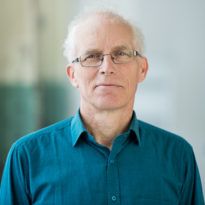
Christoph Spurk is a media researcher, until recently with the Institute of Applied Media Studies at Zurich University of Applied Sciences (ZHAW), and now Spurk Media Consulting Ltd. He mainly conducts research on quality of journalism in Africa and on the influence of mass media on the democratisation process. He is working in advancing methods of evaluation in media support, measuring results in communication efforts & mass media programmes, supporting media development organisations in monitoring & evaluation.
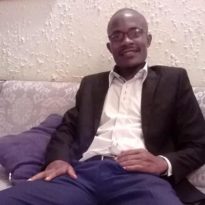
Bhekizulu Tshuma is a reporter and digital media and media and information literacy trainer. He also lectures at the National University of Science and Technology in Zimbabwe. Tshuma has vast experience in media operations having worked for media organisations such as the Chronicle and Sunday News. He is also well vested is mobilie journalism, especially use of microblogging sites such as Twitter and Facebook to tell community stories. He also works for Centre for Innovation and Technology (CITE) in Zimbabwe. He is currently working on his PhD in Journalism with the University of Free State in South Africa.
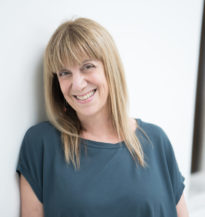 Barbie Zelizer is the Raymond Williams Professor of Communication and Director of the Center for Media at Risk at the University of Pennsylvania’s Annenberg School for Communication. A former journalist, she is known for her work on journalism, crisis, culture, memory and images. She has authored/edited fifteen books and over 150 articles/essays. Recipient of multiple fellowships, her work has appeared in national and global media. Coeditor of Journalism: Theory, Practice and Criticism, Zelizer is past President of the International Communication Association. Her most recent book is The Journalism Manifesto (2021, with Pablo Boczkowski & C.W. Anderson), and she is working on How the Cold War Drives the News.
Barbie Zelizer is the Raymond Williams Professor of Communication and Director of the Center for Media at Risk at the University of Pennsylvania’s Annenberg School for Communication. A former journalist, she is known for her work on journalism, crisis, culture, memory and images. She has authored/edited fifteen books and over 150 articles/essays. Recipient of multiple fellowships, her work has appeared in national and global media. Coeditor of Journalism: Theory, Practice and Criticism, Zelizer is past President of the International Communication Association. Her most recent book is The Journalism Manifesto (2021, with Pablo Boczkowski & C.W. Anderson), and she is working on How the Cold War Drives the News.


